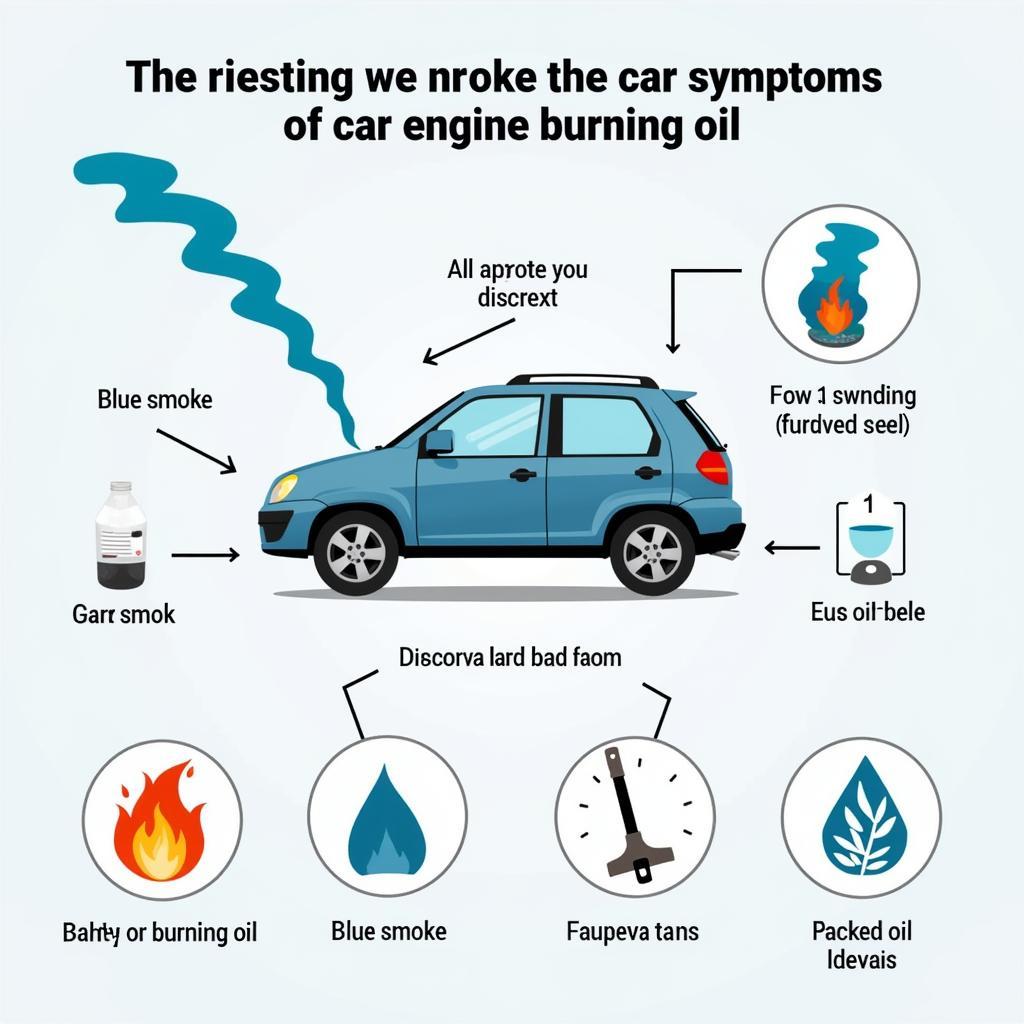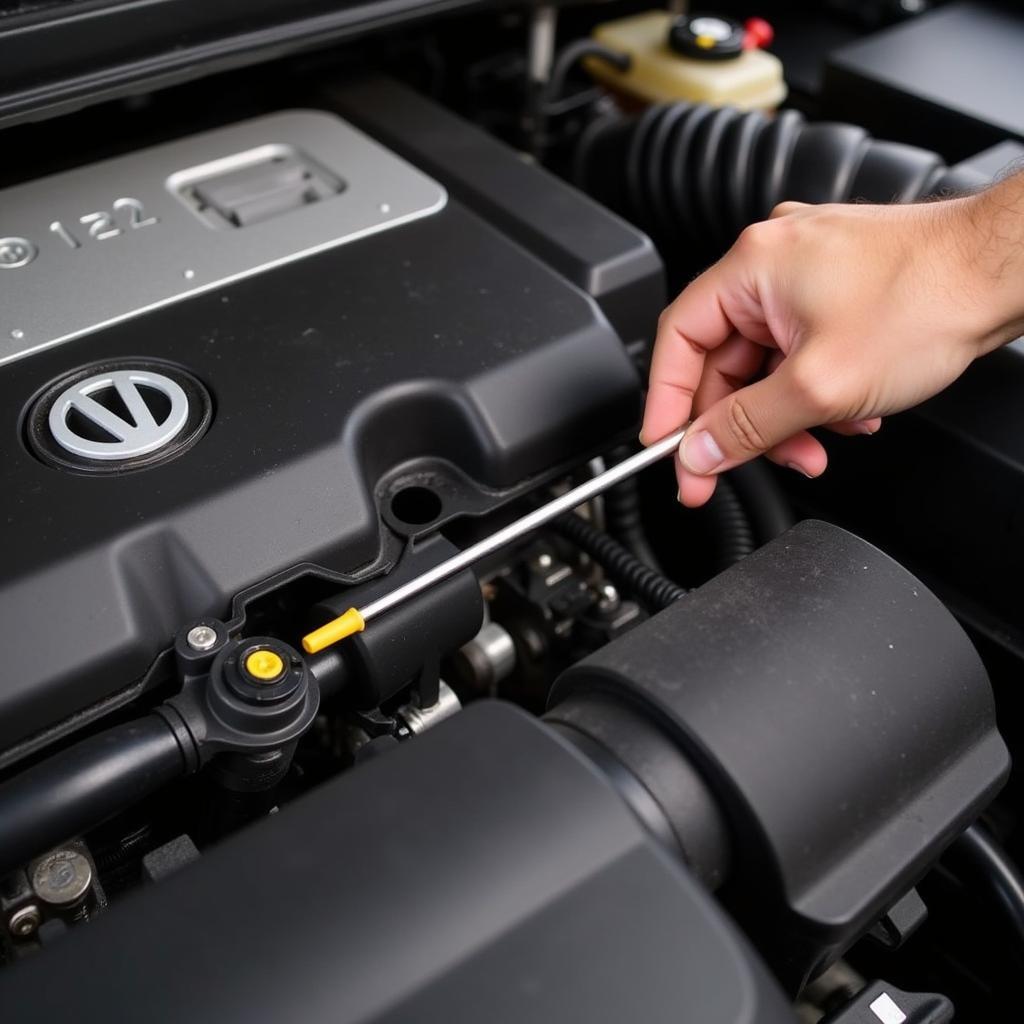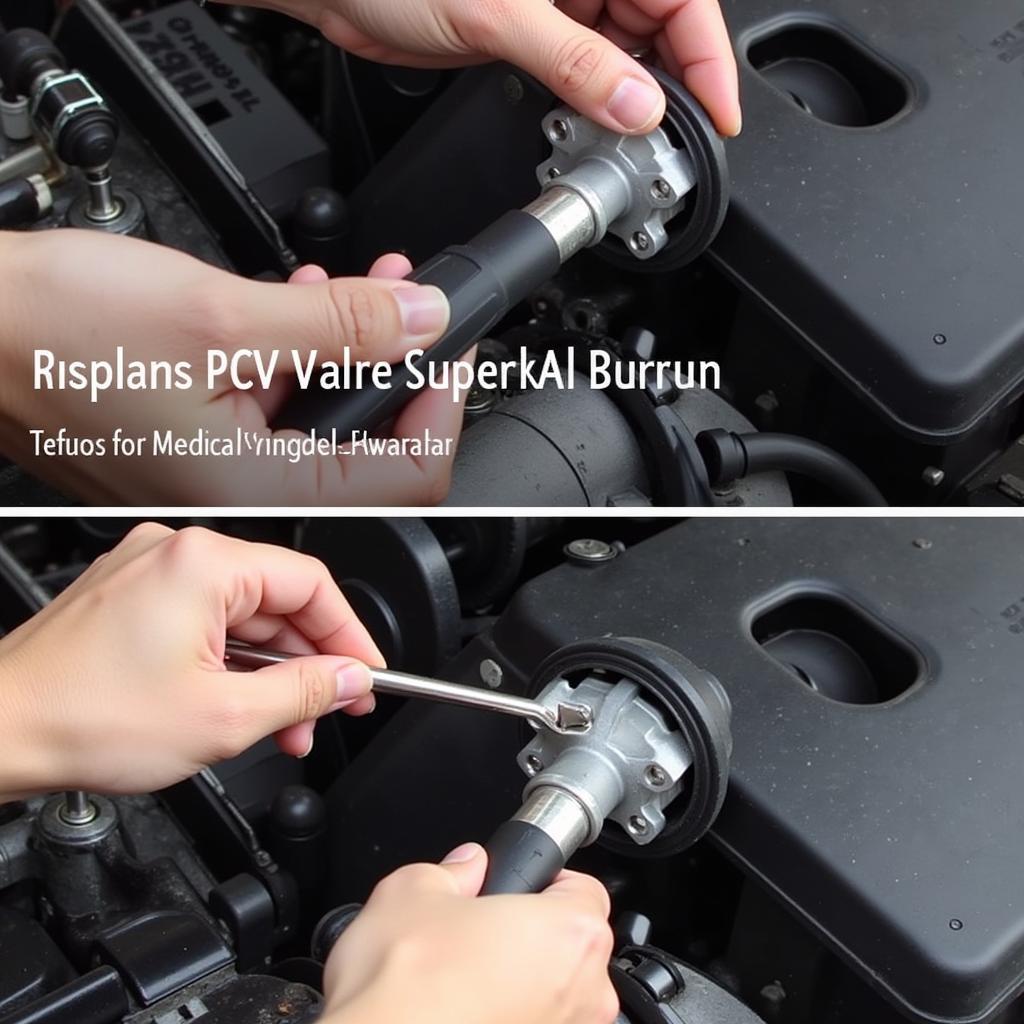Burning oil is a common engine problem that can lead to costly repairs if left unaddressed. This guide provides comprehensive solutions for diagnosing and fixing your car engine’s oil consumption issue. We’ll cover the common causes, DIY fixes, and when professional help is necessary. Let’s dive in!
 Car Engine Burning Oil Symptoms
Car Engine Burning Oil Symptoms
Understanding Why Your Car Engine Burns Oil
Several factors can contribute to oil burning. Identifying the root cause is crucial for effective repair. Common culprits include worn piston rings, valve seals, or a faulty PCV valve. Less common, but still possible, are issues with the head gasket or cylinder walls. Is your car burning oil after an oil change? Sometimes, using the wrong oil viscosity can also be a factor. how to fix car from burning oil provides more in-depth information on this specific issue.
Worn Piston Rings: A Frequent Offender
Piston rings create a seal between the piston and cylinder wall. Over time, these rings can wear down, allowing oil to seep into the combustion chamber and burn. This often results in blue smoke from the exhaust.
Leaky Valve Seals: Another Common Culprit
Valve seals prevent oil from entering the combustion chamber through the valve guides. Worn seals can allow oil to leak down into the cylinders, leading to oil burning.
 Checking Car Engine Oil Level
Checking Car Engine Oil Level
Diagnosing the Problem: DIY Checks
Before rushing to a mechanic, some simple checks can help pinpoint the issue. Regularly checking your oil level is crucial. If you find yourself constantly adding oil, you likely have an oil burning problem. car hose fix can also be helpful in identifying leaks in other parts of your engine system.
Checking for Blue Smoke
Blue smoke from the exhaust is a telltale sign of oil burning. Pay attention to when the smoke appears. Blue smoke on startup often indicates worn valve seals, while continuous blue smoke may suggest worn piston rings.
Performing a Compression Test
A compression test measures the pressure in each cylinder. Low compression can indicate worn piston rings or other internal engine problems. If you’re not comfortable performing this test yourself, a mechanic can do it for you.
Car Engine Burning Oil Fix: DIY Solutions
Some oil burning issues can be addressed with relatively simple DIY fixes. However, significant internal engine problems often require professional attention. how to fix car engines provides valuable resources for tackling engine repairs.
Using Thicker Oil
Switching to a thicker oil can sometimes temporarily reduce oil consumption, particularly in older engines with worn seals. However, this isn’t a long-term solution and might mask a more serious problem.
Replacing the PCV Valve
A faulty PCV (Positive Crankcase Ventilation) valve can contribute to oil burning. Replacing the PCV valve is a relatively inexpensive and easy DIY fix that can sometimes resolve the issue.
“A simple PCV valve replacement can often make a big difference in oil consumption,” says automotive expert, John Miller, ASE Certified Master Technician.
 Replacing PCV Valve Car Engine
Replacing PCV Valve Car Engine
When to Seek Professional Help
If DIY solutions don’t work, it’s time to consult a professional. Internal engine repairs, such as replacing piston rings or valve seals, require specialized tools and expertise. fix car training can be a great resource for finding qualified mechanics in your area. “Ignoring oil burning can lead to catastrophic engine failure,” warns Sarah Johnson, a seasoned automotive engineer.
Car Engine Burning Oil Fix: Conclusion
Addressing an oil-burning engine is crucial for maintaining your car’s performance and longevity. This guide has provided valuable insights into the causes, diagnosis, and solutions for Car Engine Burning Oil Fix. Remember to check your oil regularly and address any signs of oil burning promptly. If you need assistance, don’t hesitate to contact us at AutoTipPro at +1 (641) 206-8880 or visit our office at 500 N St Mary’s St, San Antonio, TX 78205, United States.
FAQ
- What causes white smoke from the exhaust? White smoke usually indicates a coolant leak. how to fix a car gas line leak can help you address this issue.
- How often should I check my oil level? Checking your oil level at least once a month is recommended.
- Can I use any type of oil in my car? No, using the correct oil viscosity is crucial for proper engine function. Consult your owner’s manual for the recommended oil type.
- Is it expensive to fix an oil burning problem? The cost varies depending on the cause and extent of the damage.
- Can driving with low oil damage my engine? Yes, driving with low oil can cause severe engine damage.
- How can I prevent my car from burning oil? Regular maintenance, including oil changes and using the correct oil type, can help prevent oil burning.
- What are the signs of a blown head gasket? Symptoms include white smoke from the exhaust, overheating, and coolant loss. “Regular maintenance is key to preventing costly engine repairs,” advises Michael Davis, an experienced automotive technician.






Leave a Reply